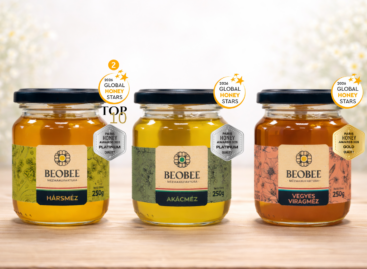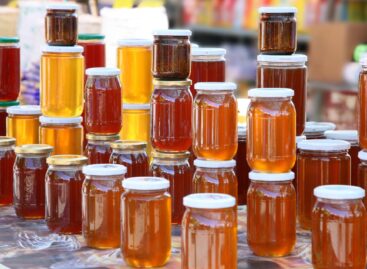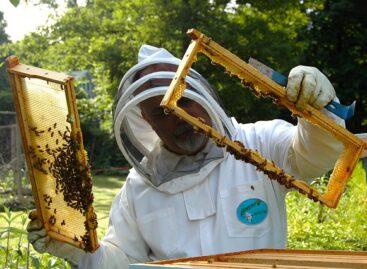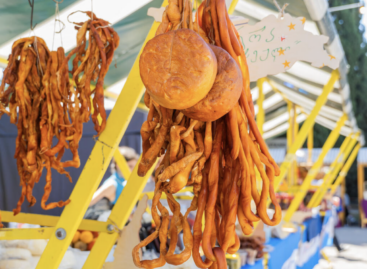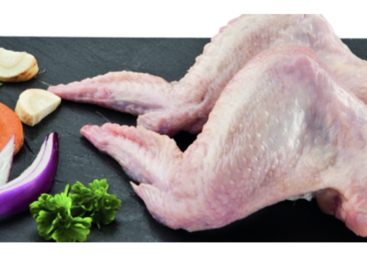Honey Trial 2025 – Record prizes and a challenging year for domestic beekeepers
The year 2025 proved to be a greater test than ever for Hungarian beekeepers. In the spring, 30–40 percent of the national bee population died, and the summer drought and nectar shortage further complicated production. The Gujka Beekeeping in Szolnok nevertheless had a successful year: it won a series of international and domestic awards, while continuously developing its products and educating customers – writes HelloVidék.
A series of awards, behind diligent work
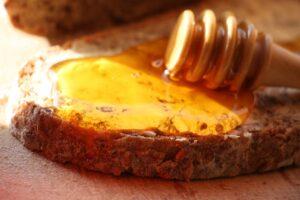 The name of the Gujka Beekeeping has become known nationwide in recent years. In 2024, their acacia honey was ranked among the top three in the world at the Black Jar Honey Contest held in the USA. At the National Honey Contest in Gyula, their acacia honey won the title of “Hungary’s Best Acacia Honey”, while in February 2025, the beekeeping’s 27 years of work and communication were recognized with the Agricultural Marketing Award. In the fall, László became the Beekeeper of the Year of Jász-Nagykun-Szolnok County, while their pistachio cream honey won third place at the Transdanubian Regional Honey Competition.
The name of the Gujka Beekeeping has become known nationwide in recent years. In 2024, their acacia honey was ranked among the top three in the world at the Black Jar Honey Contest held in the USA. At the National Honey Contest in Gyula, their acacia honey won the title of “Hungary’s Best Acacia Honey”, while in February 2025, the beekeeping’s 27 years of work and communication were recognized with the Agricultural Marketing Award. In the fall, László became the Beekeeper of the Year of Jász-Nagykun-Szolnok County, while their pistachio cream honey won third place at the Transdanubian Regional Honey Competition.
Quality comes first
According to László Gujka, the secret to success is traditional, patient beekeeping.
“We only spin when the honey is truly ripe. The honeycombs must be completely covered, because only in this way can the nectar transform into thick, long-lasting honey,” he says.
Gujka Beekeeping therefore places more emphasis on natural maturation at the expense of quantity, which is reflected in the density and quality of the honey.
Drought, mites, and the pressure of climate change
The weather in 2025 was extremely extreme. The area around Szolnok was avoided by rain clouds for months, which caused the flowers to dry out quickly, and the bees had difficulty accessing nectar and water.
“It was as if a ruler had been drawn on the map to mark the zone where no rain had fallen,” says László Gujka.
Climate change causes additional problems: due to the lack of winter cold, bees do not rest, the varroa mite infects colonies all year round, and new, invasive pests have appeared, such as the Asian horse hornet. Despite this, the apiary prepared the colonies for the rapeseed with herbal stimulants from February, which resulted in a good harvest.
Weak season on the acacia and milkweed front
The acacia bloom froze twice, and due to the cool spring, the flowers did not produce nectar.
“It was 15 degrees at the time of flowering, while the acacia produces nectar above 22 degrees,” explains László.
The apiary visited three different acacia areas, but the yield fell short of expectations. The heat caused the flowers to dry out on the milkweed, and the bees’ feet got stuck in the nectar – many died.
The migratory beekeeping was finally able to stabilize the year with the sunflower, where they achieved a good harvest in the rainier parts.
“It wasn’t a record year, but compared to previous bad seasons we can be satisfied,” says László.
Rare “chestnut and linden” from Zselic
This year, a special honey was produced in Zselic, which has also been tested in a laboratory: the chestnut lime, which has become a new favorite among customers with its darker color and distinctive flavor. This also shows how unpredictable nature is and how diverse the flavors can be in each season.
Related news
BeoBee honeys have conquered Paris too! Three Hungarian honey varieties among the best in the world
🎧 Hallgasd a cikket: Lejátszás Szünet Folytatás Leállítás Nyelv: Auto…
Read more >Related news
FAO food price index falls for five months
🎧 Hallgasd a cikket: Lejátszás Szünet Folytatás Leállítás Nyelv: Auto…
Read more >KSH: industrial production expanded by 1.8 percent in December compared to the same period of the previous year and by 0.9 percent compared to the previous month
🎧 Hallgasd a cikket: Lejátszás Szünet Folytatás Leállítás Nyelv: Auto…
Read more >Super Bowl fever at Tesco: an American gastronomic experience made with Hungarian ingredients for watching the game
🎧 Hallgasd a cikket: Lejátszás Szünet Folytatás Leállítás Nyelv: Auto…
Read more >

